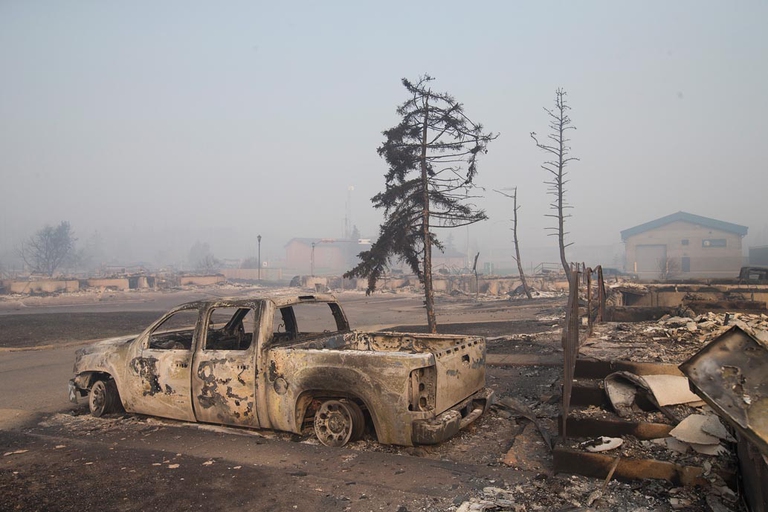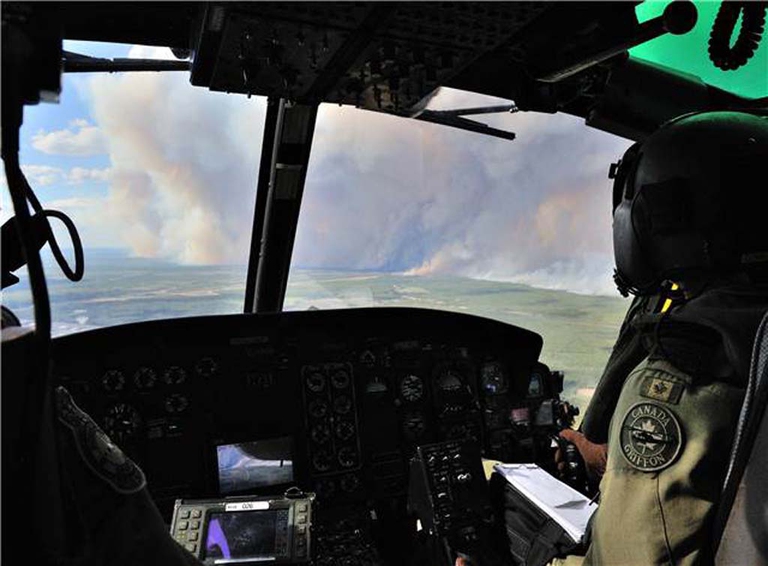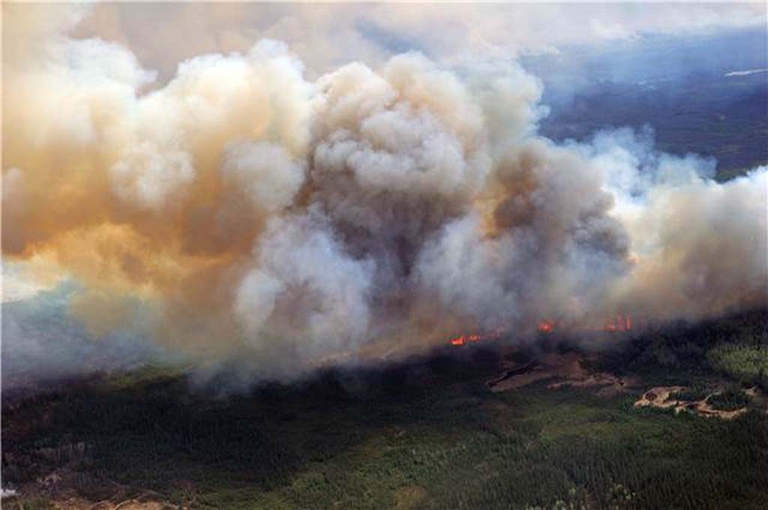
After a landslide led to twelve deaths on the island of Ischia, questions have been raised about the impacts of illegal building, tourism, and climate change.
A week after the fires started raging in Canada a city was evacuated, hectares of forest were destroyed and crude oil production was shut down.
Province of Alberta, Canada. The oil boomtown of Fort McMurray – where oil is extracted from tar sands – is deserted, has no electricity, water and gas, and is being besieged by wildfires. Its population fled because the flames are devastating the region.
Fort McMurray registered a huge expansion thanks to a boom in the construction of crude oil extraction plants from tar sands, but it is estimated that the city won’t be brought back to its previous development level.
The authorities declared a state of emergency on Wednesday, after that wildfires, started on 1st May, swept through the surrounding forests uncontrollably, even reaching the city.
Now, seven days after the fires broke out, authorities are becoming more optimistic, given that a fine drizzle and a a change in wind direction fanned the fire away from the residential area. But the state of emergency is anything but solved: 34 fires, five of which were wildfires, were still raging on Monday despite the work of 500 firefighters, 15 helicopters and 14 tanker aircrafts.
The figures are alarming: wildfires burnt 161,000 hectares of land, 88,000 people were evacuated, 20 per cent of the town of Fort McMurray was destroyed, the production of crude oil from tar sands decreased by a million barrels a day. The Canadian insurance industry’s damage is estimated to be around 9 billion Canadian dollars (six billion euros). According to Reuters, this could be the costliest disaster in Canadian history.
The market trends will be affected by this situation too. It’s estimated that the disaster will halt the country’s economic growth in the second trimester, while the decreased production of crude oil has already contributed to increase the price per barrel by 2%. A number of pipelines and plants have been closed in advance and at least one plant is not operational because of smoke.
It’s not yet clear why the fires broke out and the authorities are planning to fly drones and aircrafts to see where the fire started. In any case, the shadow of climate change lies over the disaster with higher temperatures and lower rainfall than average in this season.
“It’s a black irony of having the Mecca of the Canadian oil industry go up in flames to a climate change-induced wildfire,” the site Vice reads, also recalling the 15 million dollars cut from wildfire management in last month’s provincial budget.
Siamo anche su WhatsApp. Segui il canale ufficiale LifeGate per restare aggiornata, aggiornato sulle ultime notizie e sulle nostre attività.
![]()
Quest'opera è distribuita con Licenza Creative Commons Attribuzione - Non commerciale - Non opere derivate 4.0 Internazionale.
After a landslide led to twelve deaths on the island of Ischia, questions have been raised about the impacts of illegal building, tourism, and climate change.
Not much snow, peaks of 19 degrees Celsius in Norway and even 28 degrees in France: official data confirms the anomalously high temperatures of this past winter.
Ocean warming has risen to record highs over the last five years: just in 2019 the heat released into the world’s oceans was equivalent to that of 5-6 atomic bombs per second. The culprit, no doubt, is climate change.
What did Greta Thunberg tell participants at the 2020 World Economic Forum in Davos? Once again, the Swedish activist underlined the total lack of concrete solutions to the climate crisis presented by leaders so far.
The list of human and animal victims of the Australia wildfires keeps growing – one species might already have gone extinct – as the smoke even reaches South America.
Kivalina is located on a small island once guarded by sea ice, which is now melting due to global warming. While the sea threatens to wipe the village off the face of the Earth, its inhabitants refuse to give up their lives and traditions.
Thanks to activists, the voice of the world’s peoples resounded through the COP25 like an alarm bell. Governments didn’t reach the results they demanded, but their cries and messages were stronger than ever, reaching even those who weren’t in Madrid.
Climate change poses a risk for millions. However, women are the most vulnerable to its negative consequences: a few simple considerations by the Italian Climate Network help us perceive the global implications of this.
The COP25 ended two days late and with very few steps ahead made. Climate negotiations in 2020 will be an uphill battle as political will clearly seems to be lacking, once again.











